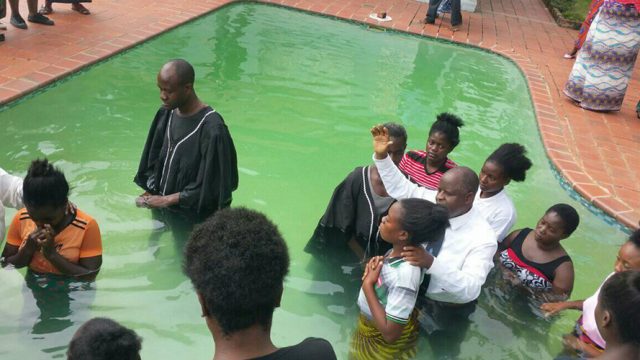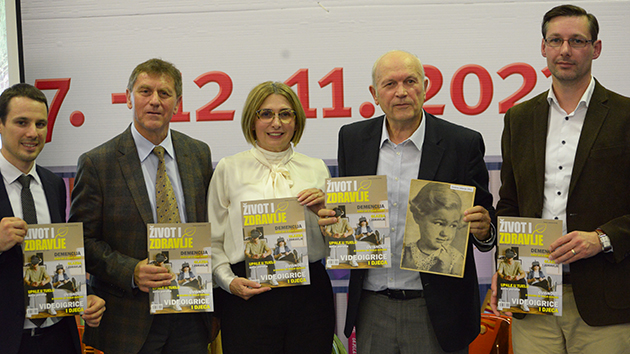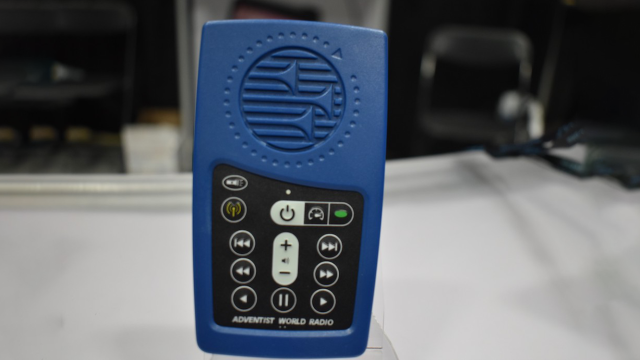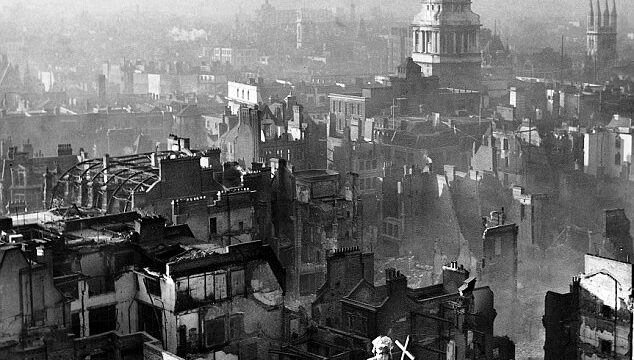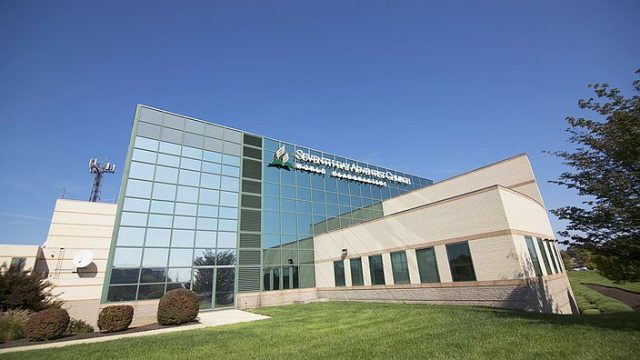The answer might surprise you.

Not many hours after several wildfires began to devastate entire neighborhoods in Greater Los Angeles, California, on January 7, social media users ran not only to share the news but also to provide ready-made explanations for the catastrophe. Christian followers, including Seventh-day Adventists, were not the exception.
A quick survey of the social media landscape unveiled purported connections and cause-effect explanations for every taste. Users mentioned the signs of the end of the world, the supposed high level of wickedness of the affected city, and its reported sexual debauchery and atheism. Others used AI-generated images of Oscar statuettes and images of million-dollar homes and cars burning, while reflecting on the vanity of materialism. Still other AI images showed—without hard proof—how this or that church building stood unscathed as mansions all around burned to the ground.
At times the thirst for a rational explanation transcended middle-of-the-road logic. A user, for example, stated that the fires flattened entire neighbourhoods on January 7 because God had not been acknowledged and honored during the Golden Globes ceremony two days before. Others found a direct link to the supposed political leanings of the population. Still others connected the tragedy to various statements from Ellen G. White, something she herself discouraged during her lifetime* and the White Estate advises against.
A tiny minority—perhaps in a ratio of 10 to 1—reflected on the meaning of tragedy as an opportunity. “God didn’t promise to spare us from tragedies, but He promise to walk with us through the fire,” one Facebook user wrote. “These catastrophes are an opportunity to extend Jesus’ compassion to those who suffer,” another commented.
The key question is, perhaps, which approach, if any, can stand a biblically based scrutiny and provide comfort, courage, and hope amid unheard-of destruction? After all, why did Los Angeles burn?
What the Reports Say
In general terms, most tragedies do not happen in a vacuum. Experts agree that a complex combination of overpopulation, extremely dry climate, construction materials used, and faulty human planning may have had a role to play in the Los Angeles fires of January 2025. After all, the Bible reminds us that “the whole creation groans and labors,” awaiting final redemption (see Rom. 8:22).
At the same time, some dubbed “miracles” were the result of—you guessed it—careful planning, higher-quality construction materials, and deliberate mitigating efforts, other experts emphasized. “The choice of materials isn’t just an aesthetic or cost decision,” fire safety expert Daniel Vasilevski explained. “It directly impacts a structure’s ability to withstand extreme fire conditions as well.”
As a way of an example, Vasilevski commented on the Malibu beachfront mansion of retired waste management CEO David Steiner. The $9 million house, the only one standing in a row by the ocean, “includes pilings driven 50 feet [15 meters] into the bedrock,” Vasilevski explained. “While these are primarily meant to provide stability during seismic activity, they make homes more resistant to wildfires as well. A deeply anchored foundation resists heat-induced shifting or cracking in the ground, which could otherwise weaken the structure and expose it to flames or embers.”
On the other hand, most of the images and commentaries purporting to show this or that church building saved from the flames just don’t hold water. According to a National Public Radio (NPR) report, the fires in Greater Los Angeles destroyed a still-unknown number of houses of worship, including Christian churches of various denominations, synagogues, and mosques. Apparently the flames did not spare any specific denomination or faith, as they did not spare schools, offices, depots, and companies either. According to an ANN report, there are Adventist leaders and members among the displaced, and some Adventist pastors and teachers also lost their homes.
What Jesus Has to Say
The desire of finding meaning in tragedy by advancing “logical” explanations is part of a fully human reaction. The human mind is designed to try to make sense of what goes on around it. It is also a reaction as old as time.
Jesus came to a world where people would regularly try to connect everyday happenings—good or bad—with a specific deserved behavior. That was the case with man born blind. Jesus’ disciples asked Him, “Rabbi, who sinned, this man or his parents, that he was born blind?” (John 9:2). Jesus discouraged that approach, explaining that sometimes bad things happen, not because of individual or collective sin, but “that the works of God should be revealed” (verse 3) in a specific person or group of people.
Not everything that happens has a clear-cut explanation based on fairness and justice, Jesus emphasized in Luke 13: “There were present at that season some who told Him about the Galileans whose blood Pilate had mingled with their sacrifices. And Jesus answered and said to them, ‘Do you suppose that these Galileans were worse sinners than all other Galileans, because they suffered such things? I tell you, no; but unless you repent you will all likewise perish. Or those eighteen on whom the tower in Siloam fell and killed them, do you think that they were worse sinners than all other men who dwelt in Jerusalem? I tell you, no; but unless you repent you will all likewise perish” (verses 1-5).
A Call to Compassion
Time and again Jesus emphasized by His words and actions that while we might not always understand why bad things happen in this life, we are called to reveal God’s compassion to those who suffer. No matter what happens in our lives, God’s ongoing presence is guaranteed, and such presence becomes an opportunity for His creatures to extend His love to those going through a rough patch. It is precisely what several faith leaders commented in the wake of the devastating L.A. fires, according to the NPR.
“If you believe God is in Jesus, then you’ve got to believe God suffers with us,” Bruce Freeman, from St. Matthew’s Episcopal Church in Los Angeles, said. That divine presence reflects in human beings who go out of their way to help others, emphasized Noah Farkas, from the Los Angeles Jewish Federation. “I find God in the response to those tragedies—in those folks who open their doors and say, ‘I don’t know you but I’m going to support you. What can I do to help?’ ” he is quoted as saying.
That was the same reason the Adventist Development and Relief Agency and Adventist Community Services joined forces to provide emergency assistance to some of the displaced.
It is also what Los Angeles area Adventist churches understood as pastors and members joined hands to open their doors to help some of those displaced and suffering. Adventist congregations became shelters, a place to find a hot meal, words of encouragement, and practical assistance. God’s compassion was reflected in efforts to distribute diapers, medicine, water bottles, blankets, nonperishable food, and toiletries. Once again, heartbreak became an opportunity to reveal God’s work in people’s lives.
“Pain unifies people,” said Manuel Arteaga, lead pastor of White Memorial Seventh-day Adventist Church in Los Angeles. And as a church, “we are united in purpose and mission.”
Associate pastor Angel Pereira agreed. “We’re going out to the streets, to other shelters, and continuing to share what we’ve been given. This is why we’re here—for such a time as this.”
*Ellen G. White wrote, “Some have reported that while in Los Angeles, I claimed that I had predicted the San Francisco earthquake and fire, and that Los Angeles would be the next city to suffer. This is not true” (Review and Herald, July 5, 1906). The White Estate states, “Reports that Ellen G. White identified specific areas as targets or centers for earthquakes, fire, flood, tidal wave, submersion beneath the sea, or enemy invasion are without foundation, and must stem from an association of ideas with more general statements in the Ellen G. White books dealing with coming disasters” (https://whiteestate.org/about/issues1/mistaken/association-ideas/specific-targets-impending-disaster/).


